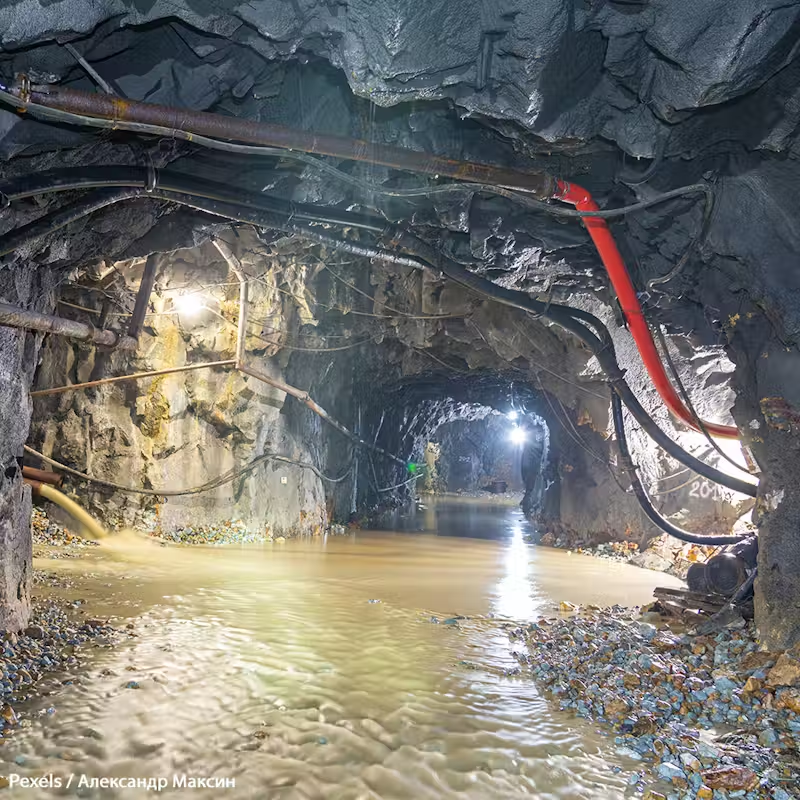Tell the EPA to Close the Mine Waste Loophole
16,639 signatures toward our 20,000 Goal
Sponsor: The Rainforest Site
Tell the EPA to close the decades-old loophole that allows the dumping of mine waste into our waterways.

The 1972 Clean Water Act prohibited mining companies from dumping their waste into rivers, lakes, and streams. But a Bush-era initiative created a loophole that allowed miners to begin using public waterways as waste dumps1.
America's approach to wetlands protection previously relied on a policy calling for "No Net Loss" of wetlands, a policy that originated in the 1980s2.
In 2001, the U.S. Army Corps of Engineers moved to reverse this long-standing policy by issuing a new guidance, dramatically weakening standards for wetlands "mitigation," ensuring the total acreage of wetlands in the country does not decrease, but remains constant or increases3. The change was issued without any public notice or coordination with other federal agencies that share responsibility for wetlands protection3.
The No Net Loss reversal was followed by other problematic rule changes, including an expanded definition of "fill material" under Section 404 of the Clean Water Act to include mine waste, and the obligation for mining operations to designate natural lakes, rivers, streams, and wetlands as "waste treatment systems," exempt from the Clean Water Act4.
Each of these changes has made it far easier for developers and mining companies to destroy more streams and wetlands.
Mining companies are taking advantage of the loopholes and dumping their toxic waste into America's bodies of water, fueling pollution and creating monumental health problems for both humans and animals.
Mines release dangerous substances such as arsenic, cadmium, copper, cyanide, zinc or mercury that are harmful to fish, wildlife and humans5. Many also leak acid into waterways, killing almost every living thing downstream.
This chemical pollution and physical stress on stream ecosystems can lead to a loss of biodiversity. Acid mining drainage has already eliminated fish completely from some rivers and streams, while others support only a few species that manager to tolerate the acidic environment5.
For over 30 years, the mining industry operated without these loopholes. It's long past time they return to those standards of operation.
Sign the petition below and call on the EPA and the Army Corps of Engineers to close these loopholes by limiting the waste treatment system exclusion to only manmade waters, revising the 2002 definition of "fill" to once again exclude waste disposal, and refocusing wetlands conservation efforts under a "No Net Loss" policy.
- Osha Gray Davidson, OMB Watch, Center for Effective Government (2009), "The Bush Legacy: An Assault on Public Protections."
- Julie M. Sibbing, National Wildlife Federation, "Nowhere Near No-Net-Loss."
- National Resources Defense Council (April 2002), "Rewriting the Rules; The Bush Administration's Assault on the Environment."
- Earthworks (2019), "Loopholes in the Clean Water Act."
- Paul Koberstein, River Voices (2005) "Impacts of Mining on Rivers."
The Petition:
Dear EPA Administrator and theCommanding General of the U.S. Army Corps of Engineers,
I find it appalling that, despite the knowledge of global warming, the United States government is still allowing waste to be dumped into our public waterways. The Clean Water Act of 1972 was enacted to prohibit the polluting of lakes, rivers, and streams. Yet the Bush administration created a loophole in the law, which has made it so that mining companies are no longer sanctioned from dumping their waste.
Water pollution doesn't just affect its surrounding communities, it affects the whole world. Loopholes in our environmental protection laws mean that the government is not only endorsing global warming, but contributing to it.
Mining waste, like any other toxic material, belongs in its right place;mdash&and it's not in our waterways. I demand you take a stand for the critical wetlands of the United States by limiting the waste treatment system exclusion to only manmade waters, revising the 2002 definition of "fill" to once again exclude waste disposal, and refocusing wetlands conservation efforts under a "No Net Loss" policy.
Sincerely,